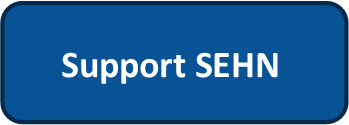|
Friends of SEHN,
When SEHN was created 24 years ago, the larger environmental community saw the pressing need for two things: reframing how science was used in environmental health policy and grassroots groups' need for technical assistance. SEHN was formed to meet those two needs, which, of course, are closely coupled.
We began work on the precautionary principle and introduced it into public health and environmental policy. This reshaped the conversation on scientific uncertainty and developed a robust, ethical decision-making process. But we have always done this work in the crucible of hands-on, grassroots work. Grassroots groups then and now were working to protect their health, the water, the land, and future generations from the scourges of toxic chemicals, pipelines, mining and so much more. They needed scientists to bring unique expertise to their struggles and we help find that expertise or provide it in-house.
Ted Schettler (a physician and public health expert) and I (a lawyer) often tag team the technical assistance we bring to coalitions and community groups. I help make legal arguments and review legal documents to find hooks for the precautionary principle and the public trust responsibilities of government while Ted analyzes the science and provides new ways to make the scientific case for precautionary actions.
In this issue of the Networker, Ted writes about a recent collaboration in New Mexico over groundwater contamination from Los Alamos National Laboratory. It is a wonderful story of how powerful, skillful coalitions employ technical expertise like ours and how these collaborations change the game.
This is one example of a SEHN partnership. We are also involved in helping to stop a 15,000 hog confined animal feeding operation in Iowa by showing the human health problems associated with massive quantities of pig manure. We are working to stop pipelines and all the corollary ills of pipelines, from sex trafficking to water pollution to agricultural land damage.
Here’s Ted’s story about Los Alamos. Share it with your budding scientists and lawyers. So often young professionals want to know how to find meaning and make a difference in their work. Here’s one story of how two of us use our expertise in concert with skilled, powerful coalitions to protect the Earth and all our kin.
Carolyn Raffensperger
Executive Director
PS Thank you to all who have donated to SEHN in our end of year appeal. You make this work possible. |









